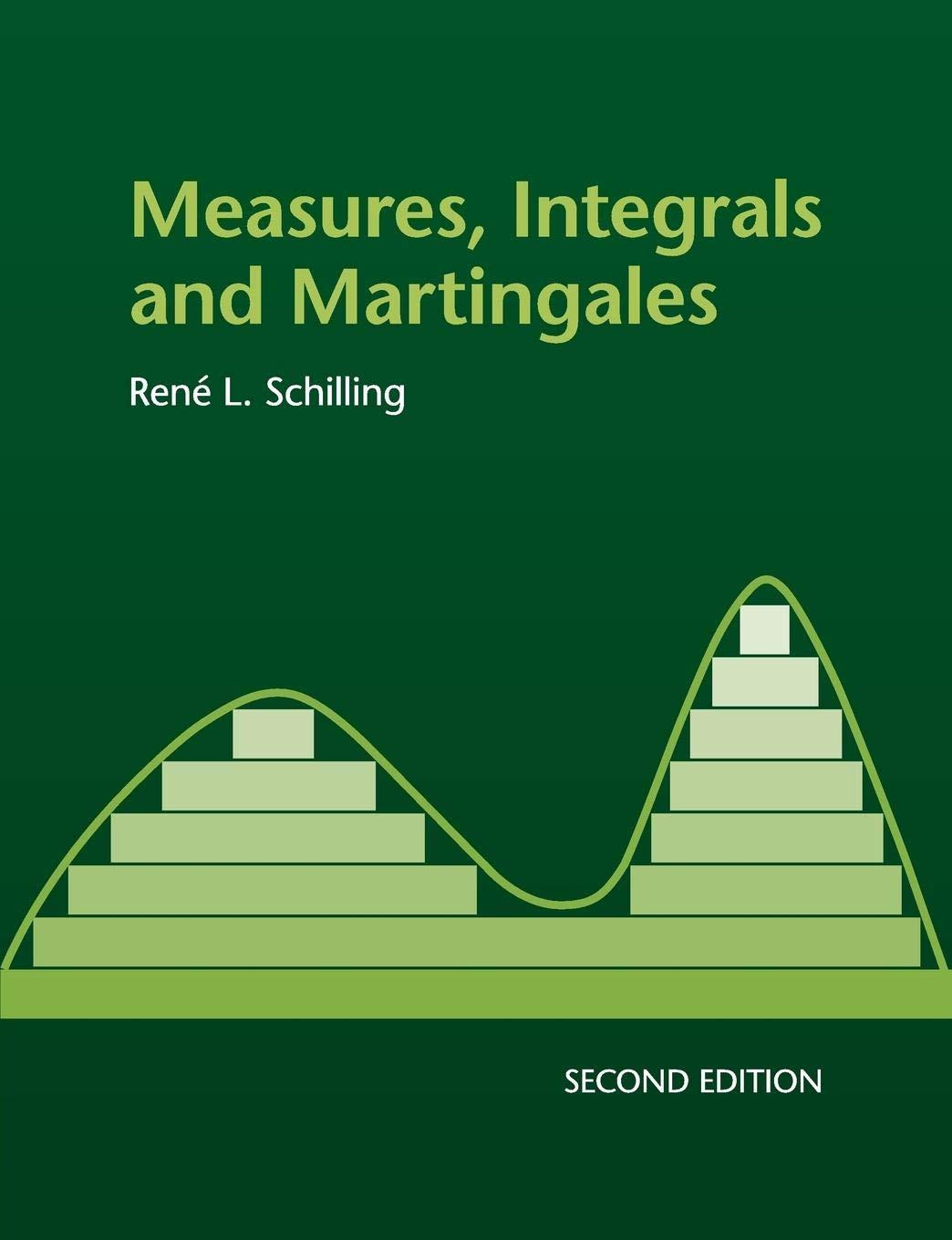Completion (1) We have seen in Problem 4.12 that measurable subsets of null sets are again null
Question:
Completion (1) We have seen in Problem 4.12 that measurable subsets of null sets are again null sets: \(M \in \mathscr{A}, M \subset N \in \mathscr{A}, \mu(N)=0\) then \(\mu(M)=0\); but there might be subsets of \(N\) which are not in \(\mathscr{A}\). This motivates the following definition: a measure space \((X, \overline{\mathscr{A}}, \mu)\) (or a measure \(\mu\) ) is complete if all subsets of \(\mu\)-null sets are again in \(\overline{\mathscr{A}}\). In other words, it holds if all subsets of a null set are null sets.
The following exercise shows that a measure space \((X, \mathscr{A}, \mu)\) which is not yet complete can be completed.
(i) \(\overline{\mathscr{A}}:=\{A \cup N: A \in \mathscr{A}, \quad N\) is a subset of some \(\mathscr{A}\)-measurable null set \(\}\) is a \(\sigma\)-algebra satisfying \(\mathscr{A} \subset \overline{\mathscr{A}}\).
(ii) \(\bar{\mu}\left(A^{*}ight):=\mu(A)\) for \(A^{*}=A \cup N \in \overline{\mathscr{A}}\) is well-defined, i.e. it is independent of the way we can write \(A^{*}\), say as \(A^{*}=A \cup N=B \cup M\), where \(A, B \in \mathscr{A}\) and \(M, N\) are subsets of null sets.
(iii) \(\bar{\mu}\) is a measure on \(\overline{\mathscr{A}}\) and \(\bar{\mu}(A)=\mu(A)\) for all \(A \in \mathscr{A}\).
(iv) \((X, \overline{\mathscr{A}}, \bar{\mu})\) is complete.
(v) we have \(\overline{\mathscr{A}}=\left\{A^{*} \subset X: \exists A, B \in \mathscr{A}, A \subset A^{*} \subset B, \mu(B \backslash A)=0ight\}\).
Data from problem 4.12
Null sets. Let \((X, \mathscr{A}, \mu)\) be a measure space. A set \(N \in \mathscr{A}\) is called a null set or \(\mu\)-null set if \(\mu(N)=0\). We write \(\mathscr{N}_{\mu}\) for the family of all \(\mu\)-null sets. Check that \(\mathscr{N}_{\mu}\) has the following properties:
Step by Step Answer:






